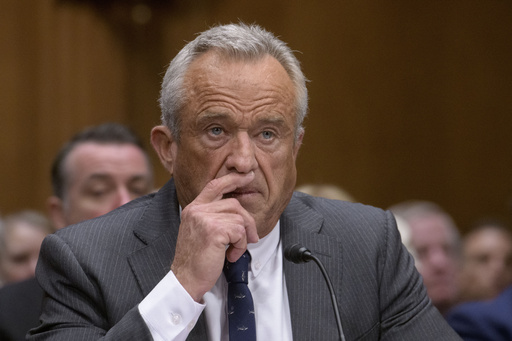Robert F. Kennedy Jr. is stepping into the political fire! This week, on Wednesday and Thursday, he faces an intense Senate grilling. Senators from both parties are ready with tough questions. The stakes are high. If confirmed, Kennedy will lead the Department of Health and Human Services (HHS). This powerful agency controls health policies, including the FDA and CDC.
A controversial choice!
Kennedy’s nomination is causing an uproar! At 71, he’s one of Trump’s most controversial picks. His history of spreading anti-vaccine rhetoric has outraged scientists and doctors. For years, he has claimed vaccines cause autism—despite overwhelming research proving otherwise. He even accused the FDA of aggressively suppressing raw milk. The FDA, however, warns that raw milk carries deadly bacteria like E. coli and listeria. Another shocking claim? Kennedy wants to stop adding fluoride to drinking water, arguing it causes health issues. Experts strongly disagree.
Bipartisan support? Maybe on food!
Surprisingly, Kennedy might win some bipartisan support on food and nutrition. His ‘Make America Healthy Again’ plan is gaining attention. He vows to ban harmful food additives already outlawed in other countries. He also promises to reform food regulations and subsidies. Some experts welcome this focus, but most remain alarmed by his stance on vaccines and public health.
Fierce opposition from health experts!
Medical experts are speaking out! Dr. Paul Offit, a vaccine specialist, says, “This discussion shouldn’t even be happening.” He points out that Kennedy’s false claims about vaccines are dangerous. Kennedy has called the COVID-19 vaccine “the deadliest vaccine ever made.” Yet, research proves it’s both safe and effective. Kennedy even petitioned the FDA to revoke emergency approval of COVID vaccines. Offit is outraged. “Hospitals were overwhelmed. The vaccine was a godsend!”
Georgetown professor Lawrence Gostin expects senators to drill Kennedy on vaccines. Will he appoint experts to vaccine advisory committees? Will he follow CDC guidelines? Kennedy also suggested AIDS isn’t caused by HIV—another claim debunked by science.
Kennedy’s food stance: a silver lining?
Despite the controversy, some experts see hope in Kennedy’s nutrition policies. Cardiologist Dr. Dariush Mozaffarian acknowledges Kennedy’s extreme views but hopes he’ll follow science. “There’s consensus that our food is making us sick,” he says. Gostin, however, wants specifics. What policies will Kennedy push? How will he fight for them?
Financial questions loom!
Kennedy’s money matters could spark debate. His financial disclosures reveal up to $1.2 million in credit card debt and mortgages totaling $10.5 million. Yet, he’s earned over $12 million in two years. Most of that came from his law firm, which handled vaccine-related cases. To avoid conflicts of interest, Kennedy vows to cut ties with the firm if confirmed.
Republicans divided! democrats outraged!
Kennedy’s confirmation rests with the Republican-controlled Senate. Some Republicans demand clarity on his abortion stance. He previously supported a federal abortion ban after the first trimester. Later, he backtracked. Now, he aligns with Trump’s position—leaving it to the states.
Democrats fiercely oppose him! Senator Richard Blumenthal says Kennedy’s vaccine stance is a dealbreaker. Senate Minority Leader Chuck Schumer calls him “the most dangerous nominee for Americans’ health.” He blasts Kennedy’s lack of qualifications. “He’s no doctor, no neuroscientist, no public health expert.”
Senator Bernie Sanders is watching closely. He agrees with Kennedy’s food policies but questions his vaccine claims. Will Kennedy admit he was wrong? Many doubt it.
Public health on the line!
Experts fear what Kennedy’s leadership could mean for HHS. Gostin urges senators to ask tough questions. Will Kennedy follow science? Will he trust career health experts? The U.S. pulled out of the World Health Organization under Trump—how would Kennedy handle that?
The hearings will be explosive! Will Kennedy survive the scrutiny? His future—and the future of public health—hangs in the balance.




